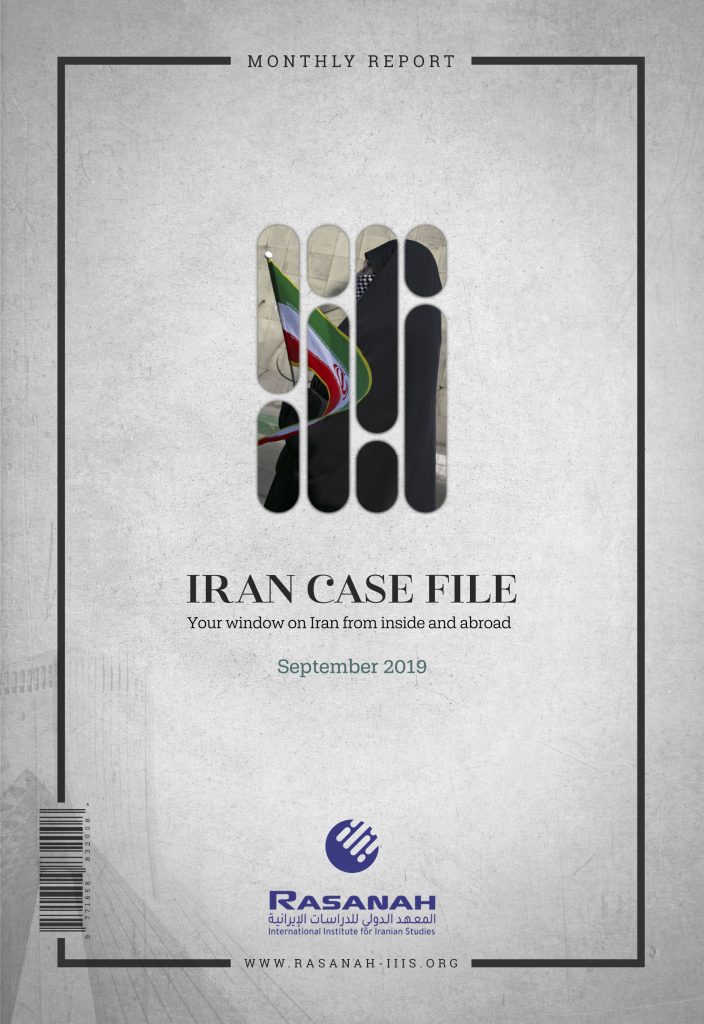The International Institute for Iranian Studies (Rasanah) has issued its monthly report, Iran Case File for September 2019, providing readers in general and researchers in particular an accurate and detailed review of Iranian affairs, exploring its features and interactions at various levels. The report is divided into three main parts: Internal Affairs, International Affairs and Arab Affairs.

Internal Affairs, particularly in The Political File, explores the corruption penetrating the Iranian government’s institutions, which cannot be hidden from the Iranian people anymore. Despite the government’s desire to maintain an ideal image of its figures, the crackdown on corruption led by the current head of the judiciary Ebrahim Raisi, is one of the Iranian government’s tools to improve the deteriorating economic conditions in the country which have worsened since the United States imposed sanctions on Iran.
The Economic File discusses the attacks against the Saudi oil installations in September 2019 in Abqaiq and Khurais. US President Donald Trump announced a new package of economic sanctions on Iran, which included the Central Bank of Iran, the National Development Fund and Etemad Tejarat Pars. These sanctions will lead to a deterioration in Iran’s economy and constitute a decisive factor in shaping the realities and future of the Iranian economic situation.
The Military File explores the interpretations of several observers in which they discuss why the attacks against Saudi oil installations were successful.
As for Arab Affairs, Iran continues to implement its schemes in Syria, taking advantage of the success of Bashar al-Assad’s government in controlling more Syrian territory with the help of Russia and Iran. It also boosted its efforts to establish military bases in Syrian territories, especially near the Syrian-Iraqi borders amid continued competition with the Russians to get reconstruction and infrastructure contracts. With regard to Yemen and the Iranian role there, the Houthi militia claiming responsibility for the attacks on Aramco represented further evidence of its subordination to Iran. The Houthis announced their initiative of de-escalation and stopping attacks against Saudi Arabia.
As for International Affairs, Iran believed that the sacking of US National Security Adviser John Bolton would bring a change in the US position on dealing with Iran. When Bolton was dismissed, the US position did not change as a new package of sanctions was imposed along with renewed calls for negotiations. The report concludes that the new development is the enhancement of the US military presence in the Arabian Gulf due to Iran’s hostile acts that threaten maritime navigation and compromise the security of the region’s countries.
Finally, the report explores Russian-Iranian relations, analyzing how Iran seeks by all means to deepen cooperation with Russia and the member states of the Eurasian Economic Cooperation Organization (EECO) in order to mitigate the impact of US sanctions. It floated the project of banking interconnection between the Interbank Information Transfer Network, known as Shetab and Russia’s Mir to facilitate transfers among individuals and institutions in the two countries in order to avoid conducting dealings using SWIFT.
Click here to read the full report, and download a PDF copy
